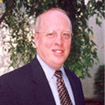Commentary on Romans 12:1-8
One could probably preach on this passage for months without much repetition, except for its grounding in the mercies of God.
So, what follows will attempt to describe some key elements and implications for living as individuals and communities of faith.
Looking back and forward at the same time
The word “therefore” in verse 1 points to the essential link between Paul’s admonitions and their theological basis. He has spent chapters 9-11 (over 2,000 words in English) exploring core elements of God’s relationship with humanity, God’s perpetual call to life, humanity’s resistance, and how we humans can find our way back to the God who always desires our return. As he says at the end of this exploration, it all depends, we all depend, on the unflagging mercies of the God “from [whom], through [whom], and to [whom] are all things” (Romans 11:36).
So Paul continues, “I appeal to you, therefore, by the mercies of God.” It’s another way of recalling the center of the Law, the prophets, the writings, and the gospel. He calls us to keep God’s unending mercies ever before us, to write that down, tie it to our forehead, write it on the doorframes of our houses, teach it to our children, talk about it all day long, and ponder it through the night (Deuteronomy 11:1-21). He calls us to live by an essential truth, stated elsewhere with different language but describing the same thing:
- “You shall love the Lord your God with all your heart, soul, strength, and mind and your neighbor as yourself” (Deuteronomy 6:5, 11:1, 13; Matthew 22:37, Mark 12:30-1; Luke 10:27)
- “Faith, hope, and love abide, and the greatest of these is love” (1 Corinthians 13:13)
- “For God so loved the world …” (John 3:16)
- “Everyone who loves is born of God and knows God … for God is love” (1 John 4:7-8).
All our forward motion should proceed out of that enduring reality.
Present your bodies as an offering to God
Paul never forgets that we are embodied creatures. Everything we think, say, or do, we do in a body. Presenting our bodies means staying aware each day that our body is the primary location in which we actually express our heart, soul, strength, and mind. If we want to know our inmost motives and values, we can look at what we do each day in our bodies. Every day in all the places we go, all the things we do, and all the decisions and recommendations we make, we are presenting our bodies. Over time, our actions, choices, and recommendations cumulatively create a body of work, so to speak. Essentially, that body of work is the body Paul is talking about.
At this point, someone might say, “This sounds suspiciously like works righteousness.” However, works righteousness aims at doing things that lead up to salvation. What Paul describes flows out of salvation. It doesn’t earn salvation but lives it out in one’s body right now. In classical terms, it’s the sanctification that follows justification; redemption resulting in transformation.
The goal is to have a body, a body of work, that is a living “thusia” (in Greek), a living, breathing, daily “offering to God.” “Sacrifice” (the NRSV translation) is a bit misleading. In the first century, an act of worship often entailed the ritual slaughter of an animal— a dove, sheep, bull, etc. In today’s context, it might be clearer to use the broader term, “offering” rather than “sacrifice.” Because of God’s abundant mercy to you, present your life as an offering to God.
Do not be conformed to this world, but be transformed
In the U.S., we live in a culture that inundates us with advertising designed to keep us conformed to this world. The marketing/media industry spends billions of dollars annually to flood televisions, websites, billboards, email, regular mail. They intrude even onto gas pump screens or the screens on debit/credit card readers. They seek to define us essentially as consumers, individual economic units existing for the sake of larger market shares. In addition, each day our families, friends, organizations, religions, political parties, and society at large pressure us to fit in, to stay within the boundaries of tradition, custom, or practice that mark who we’re “supposed” to be.
Not being conformed to this world is a tall order. The world will fight at every stage to convince us to look the other way rather than glimpse the injustice, hatred, oppression, immorality, greed, and violence that surround us. It takes transformation, renewal of the mind, to detach ourselves from the world’s attempts to occupy us with things that do not matter. Paul implores us to shake off the effects of this world, attend to the things that do matter, and “discern … the will of God, what is good, acceptable, and perfect” (Romans 12:2).
Present your community of faith as an offering to God
Paul also never forgets that we do not just exist as individuals in our individual bodies. We exist as members of the body of Christ. God enables that body to create its own body of work—prophecy, ministry, teaching, challenging and encouraging, giving, leading, and being compassionate. We can do those things alone, but we do them with more discernment and impact as part of a larger body. None of us can do it all. No single community can do it all, either. But God empowers each community to do all it is called to do in its context. It makes a difference to see church not as a noun but a verb, not as a place to go but as a living offering to God.
The different gifts we are given in order to make that happen vary “according to the grace given to us” (12:6). This is not simply grace as forgiveness of sin. It is grace as the transforming power of God, the renewing of our minds, the living offering, the embodiment of God’s endless mercies that set us all into motion and point us toward what is good, acceptable, and perfect.


August 27, 2017